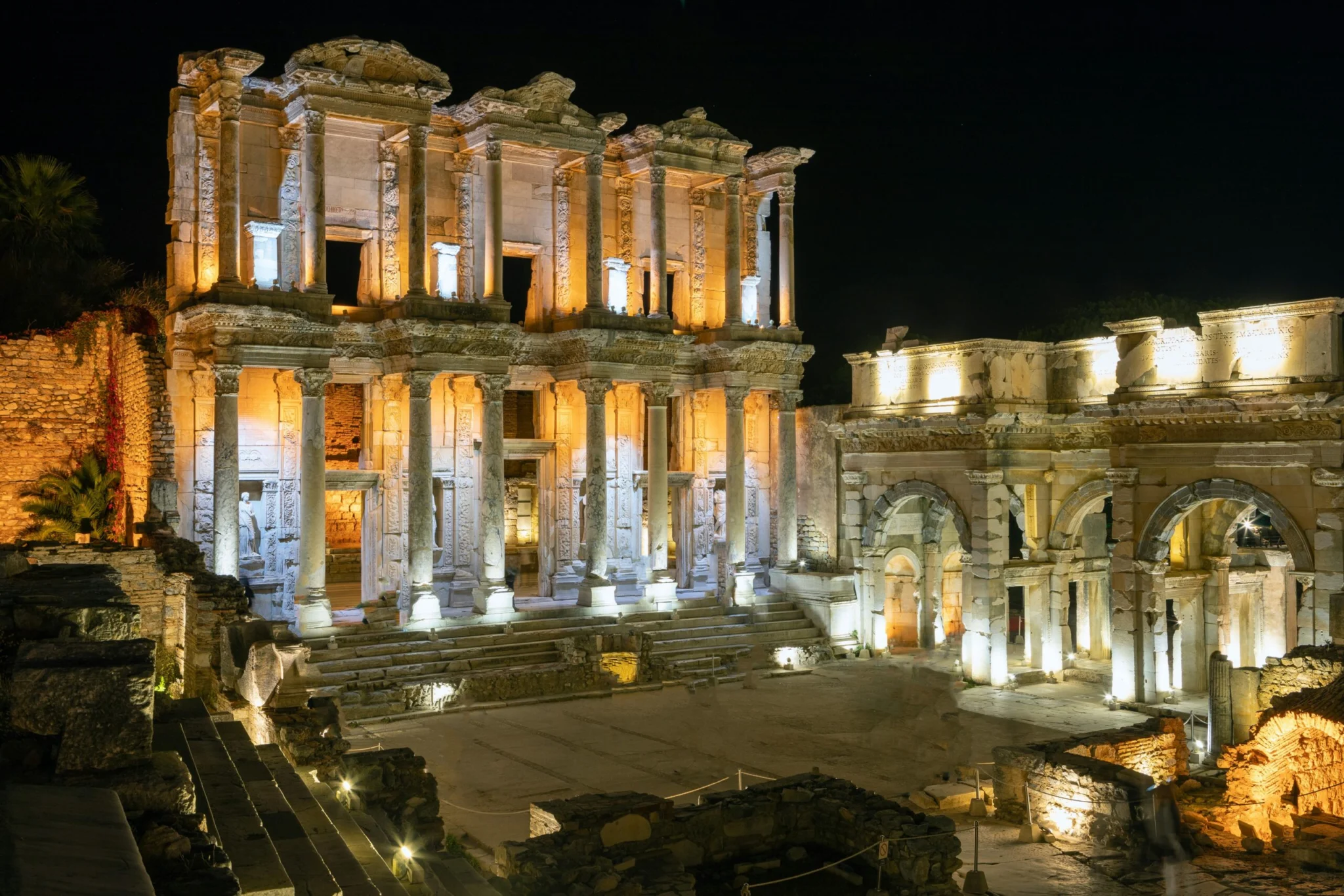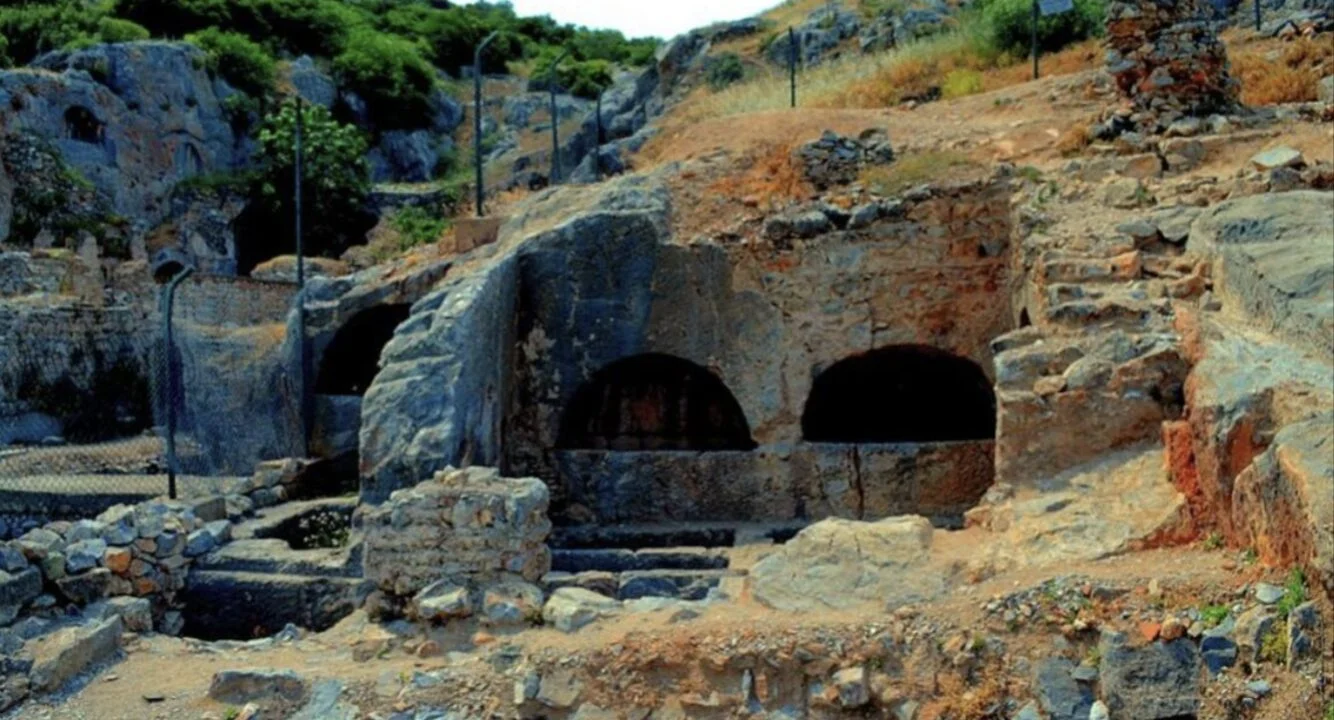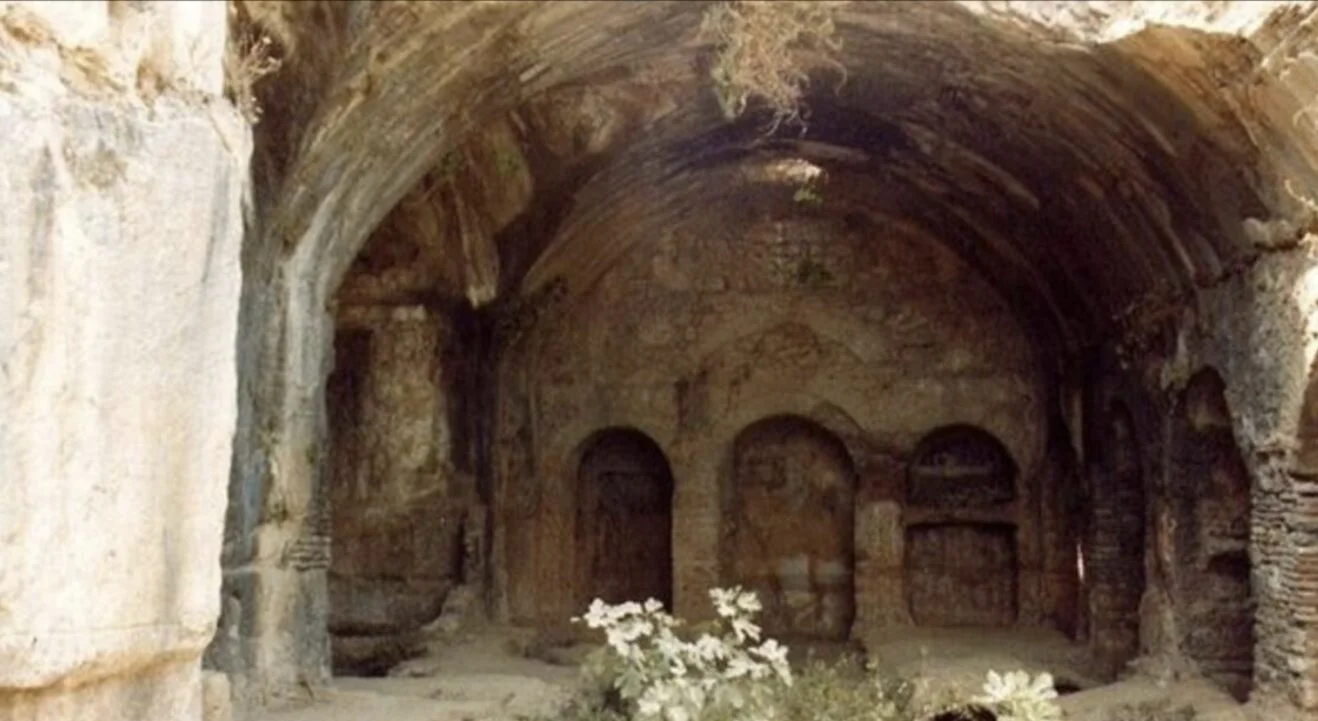Ephesus History & Surroundings 10th–11th century BC
Ephesus is a remarkable ancient city known for its rich history and stunning architecture. Once a thriving center of trade and culture, it offers a glimpse into the past with its impressive ruins, including the Library of Celsus and the Temple of Artemis, one of the Seven Wonders of the Ancient World. Nearby are the sacred House of Virgin Mary and the cave of the Seven Sleepers, adding spiritual significance to this timeless destination that continues to inspire people today.

Ephesus History and Surroundings
Ephesus is one of the most remarkable ancient cities in the world, located near modern-day Selcuk in Izmir, Turkey. Its history stretches back thousands of years, blending cultures of the Greeks, Romans, Byzantines, and early Christians. Today, Ephesus is a UNESCO World Heritage Site, attracting millions of visitors who come to admire its ruins, sacred sites, and rich cultural heritage.
Discovery and Archaeology
The ruins of Ephesus lay buried for centuries under layers of soil and time. In the mid-19th century, British engineer John Turtle Wood began excavations and in 1869 rediscovered the Temple of Artemis, one of the Seven Wonders of the Ancient World. Later, Austrian archaeologists expanded the excavations from 1895 onwards, uncovering impressive monuments such as the Library of Celsus and the Great Theatre, which once seated 25,000 spectators.
A City of Trade and Culture
Founded around the 10th century BC by Ionian settlers, Ephesus thrived due to its strategic location by the Aegean Sea. It became a major trade center and cultural hub, linking East and West. Its harbor allowed merchants from across the Mediterranean to trade goods, ideas, and traditions.
Landmarks of Ephesus
Temple of Artemis – one of the Seven Wonders, rebuilt several times after destruction.
Library of Celsus – a magnificent Roman structure built in the 2nd century AD.
The Great Theatre – the largest in Asia Minor, famous for both performances and political gatherings.
Marble Streets and Fountain Monuments – showcasing the grandeur of Roman urban planning.
Ephesus and Christianity
Ephesus holds a special place in Christian history. The city was home to an early Christian community and is mentioned in the Book of Revelation as one of the Seven Churches of Asia.
Nearby is the House of the Virgin Mary, believed to be where Mary, the mother of Jesus, spent her final years. Pilgrims from all over the world visit this sacred site to light candles, drink holy water, and leave prayers on the Wishing Wall. Another spiritual landmark is the Cave of the Seven Sleepers, a legendary site tied to Christian and Islamic traditions.
Ephesus Today
Modern Ephesus is one of Turkey’s most visited archaeological attractions. Visitors walk through its ancient streets, explore the restored monuments, and reflect on its role as a bridge between civilizations. Whether for its history, architecture, or spiritual legacy, Ephesus continues to inspire awe and devotion.Visitors often leave a wish or prayer on the Wishing Wall at the House of Virgin Mary in Ephesus, seeking peace, hope, and spiritual comfort.

The Seven Sleepers of Ephesus
Discover the Legend of the Seven Sleepers
The Seven Sleepers of Ephesus are honored as a sacred part of Christian and Islamic tradition. According to historical accounts, seven young men took refuge in a cave near Ephesus during times of persecution. Protected by God, they fell into a deep sleep and awoke centuries later, as a living testimony of faith and resurrection. Today, the cave of the Seven Sleepers remains a place of pilgrimage, symbolizing the power of belief, hope, and divine protection through the ages.

